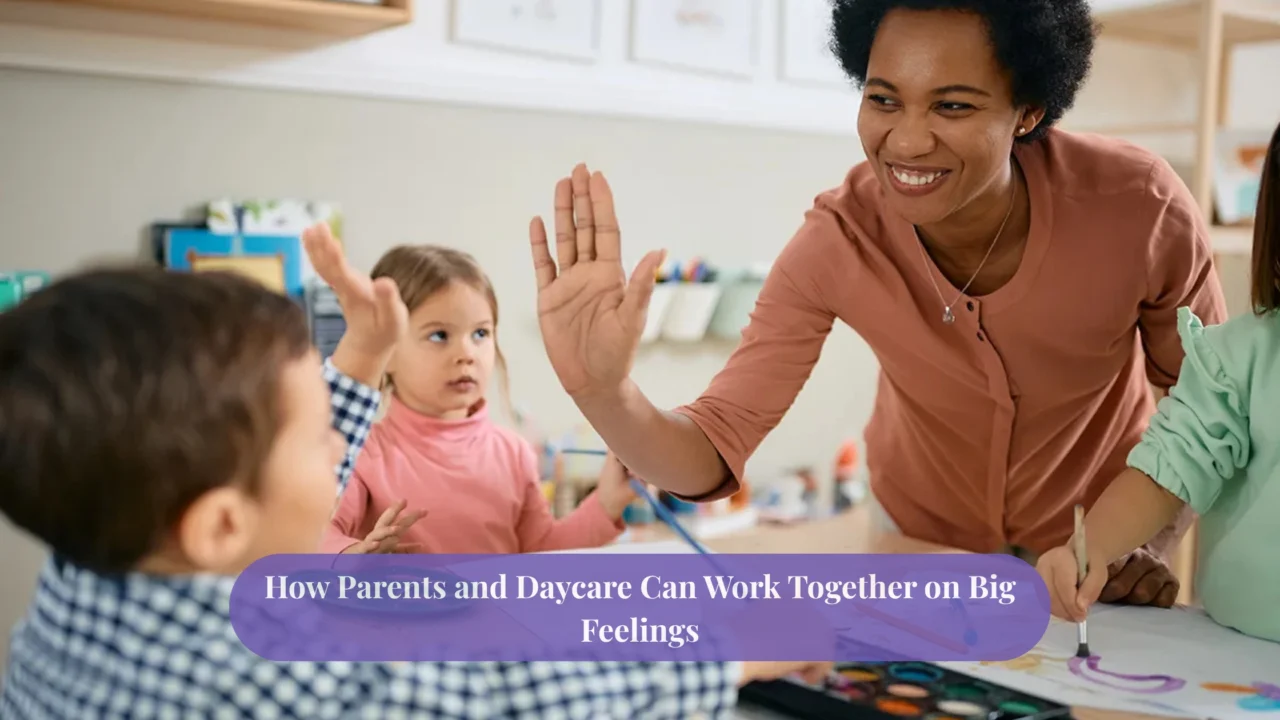Big emotions are a big part of early childhood. Tantrums, tears, sudden frustration, or unexpected joy—young children feel deeply but often lack the words or self-regulation to handle those feelings well. That’s why cooperation between parents and daycare providers is key. When both work hand in hand, children receive the consistent emotional support they need to feel safe, understood, and resilient. At the best preschool in Abu Dhabi, such collaboration is encouraged as a foundation for nurturing emotionally strong children.
This article explores how parents and daycare centers can form a strong partnership to support children emotionally, especially during their most vulnerable moments.
Understanding Big Feelings in Young Children
Children between the ages of 1 and 5 go through rapid emotional and neurological development. Their brains are still learning how to process and express feelings like anger, sadness, excitement, and fear. Without the right guidance, these emotions can overwhelm them—leading to meltdowns, clinginess, or withdrawal.
But these moments aren’t just bad behavior. Communication is what they are. When a child screams or cries, they’re often saying, “I’m scared. I’m tired. I don’t know how to say what I feel.
Emotional support, both at home and in daycare, is crucial in this situation.
The Power of a Parent-Daycare Partnership
Children feel safest when their world is predictable and the adults around them work together. If a child gets one message at home and another at daycare, it can confuse them and increase anxiety.
Instead, when parents and caregivers take a team approach, it
- Reinforces emotional lessons consistently
- Builds trust between child and caregiver
- Helps the child adjust more easily during transitions
- Makes it easier to spot patterns in behavior or triggers
Let’s explore how this collaboration can be built and strengthened.
Share What You See and Feel
Open, honest communication between parents and daycare providers is the first step. If your child has been unusually sensitive or moody at home, let the daycare staff know. Similarly, caregivers should share any emotional changes they notice during the day.
Even small details—like trouble with naptime or a new fear—can offer clues. Together, you can identify what’s going on behind a child’s emotional behavior and respond more thoughtfully.
Align on Comfort Strategies
Whether your child cries during drop-off or gets upset when sharing toys, having a shared approach matters. If caregivers respond to tears one way and parents another, it can confuse the child. Instead, work together to use similar methods for comforting upset children.
For example:
- Does your child respond better to a quiet cuddle or soothing words?
- Do they calm down faster when given space or when held gently?
- What phrases or routines do you use at home that daycare can echo?
When comfort strategies are aligned, children feel more secure and settle more easily during emotional moments.
Create Predictable Routines
Young children thrive on routine. It gives them a sense of safety and control. If both daycare and home environments follow similar structures for eating, napping, and transitions, children are less likely to become emotionally overwhelmed.
A reputable nursery in Mohamed Bin Zayed City will often share daily routines and encourage parents to mirror them at home where possible. Even simple habits like a “goodbye routine” at drop-off or a calming bedtime ritual can work wonders.
Talk About Feelings Often
The more children hear about emotions, the more they learn to understand and express their own. Use books, songs, or visual charts to talk about feelings both at home and in daycare.
Let children know that all emotions are okay—it’s how we handle them that matters. Phrases like
- It’s okay to be mad, but we don’t hit.
- You seem sad. Do you want a hug?
- Let’s take deep breaths together.”
These affirmations give children language to express themselves and foster emotional intelligence.
Support Emotional Development as Much as Academics
Sometimes, families and daycares focus heavily on letters, numbers, and school readiness. But emotional development is just as important. In fact, emotional regulation lays the groundwork for academic success.
Children who feel secure, heard, and supported are more likely to engage in learning and social interaction. The best preschool in Abu Dhabi understands this balance—integrating emotional learning with cognitive skills to build well-rounded, confident children.
Encourage Mental Wellness From the Start
Emotional health starts early. Helping children recognize, name, and navigate their feelings is not only about behavior—it’s about mental wellness.
A consistent, supportive relationship between parents and caregivers supports mental wellness for toddlers, helping them manage stress, build self-esteem, and develop emotional resilience.
By working together, adults create a protective circle around the child, reinforcing that no matter what they feel, they are safe and supported.
Final Thoughts
Handling big feelings in young children isn’t easy. It takes patience, empathy, and consistency—both at home and in daycare. But when parents and caregivers come together as partners, children learn that they are not alone in their emotions.
They learn to trust, to talk, and eventually to self-regulate.
So whether you’re a parent managing bedtime tears or a caregiver calming post-nap frustration, remember: it’s the connection that counts. Together, we can help children grow into emotionally intelligent, resilient individuals—ready to face the world with confidence.
Looking for a daycare that cares?
Contact us today to see how we nurture happy, confident little learners.




